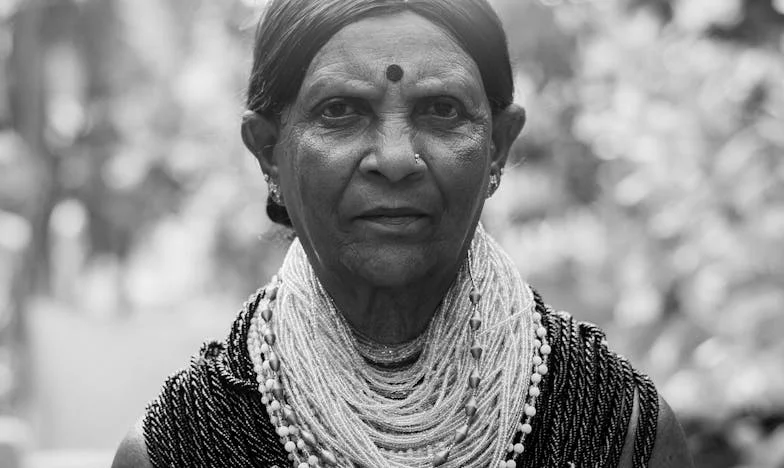When the Menu Changes: A Family Sunday That Turned My World Upside Down
“Katherine, do you really have to use so much butter?” Anna’s voice sliced through my kitchen like a paring knife, her tone gentle but her eyes unwavering. My hand froze mid-stir, a thick curl of homemade mashed potatoes dangling from the spoon—a recipe my own mother taught me, passed down through decades of Sunday lunches. The air was heavy with Sunday, the kind that always smelled of gravy and cinnamon, but suddenly, it felt foreign, uncertain.
Jake, my husband, glanced at me from the table, his brow raised in that way only I would catch—half amusement, half warning. Our daughter, Emily, picked at her phone, pretending not to notice. And there was my son, Michael, standing awkwardly between us, as if he could somehow mediate the war that was about to erupt over Yukon Golds and calories.
“Anna, it’s just a little butter. It’s family tradition,” I replied, trying to keep my voice steady, but the words tasted defensive in my mouth. I forced a tight smile and looked at Michael, searching for backup. He shifted uncomfortably, caught between loyalty to the woman who raised him and the one he chose to build a life with.
Anna set her Tupperware on the counter—her own version of potato salad, vegan and bright with avocado and quinoa. “Tradition is important, Katherine, I know. But we’ve learned so much about health. I just think we should be more mindful, especially with Emily’s cholesterol—”
Emily’s head snapped up. “My cholesterol is fine.”
Jake coughed. “Maybe we can have both? Katherine’s potatoes and Anna’s salad?”
But it was too late. I could feel the tears pricking at my eyes, hot and humiliating. I turned back to the stove, willing myself not to cry in front of everyone.
I’d always prided myself on being the glue—the one who kept everyone gathered around the table, who remembered birthdays, who stitched together the old and the new. But suddenly, I felt like a relic in my own home, my traditions up for debate, my worth measured in grams of fat and sodium.
After lunch, Anna offered to do the dishes. I watched her, careful and efficient, lining up my old china next to her BPA-free containers. “I hope I didn’t offend you,” she said quietly, keeping her eyes down. “I just want Michael to be healthy. All of us.”
My voice shook. “I know you mean well. But sometimes it feels like you’re saying the way I’ve done things is wrong.”
She looked up then, her blue eyes earnest. “No, I—I just want to help. My mom had a heart attack at 52. I can’t help being anxious. I’m sorry if I push too hard.”
I softened, but the ache remained. “I lost my mom young, too. And sometimes I think if I just cook like she did, keep the traditions going, maybe I can keep her with me. Keep us together.”
Anna reached out, her hand hovering over mine. An awkward truce.
But the next Sunday, Anna arrived with a vegan casserole and a stack of nutrition pamphlets. Michael hovered near her, supporting but anxious, while Jake quietly ordered a meat lover’s pizza and slipped slices to Emily in the backyard. The house was divided: team casserole, team pizza, and me somewhere in the middle, desperate for peace.
The tension grew. Emily started skipping family lunch, claiming homework. Jake grumbled about bland food. Michael and Anna whispered late at night, their voices carrying through the hall. I felt invisible, my role shrinking with every passing Sunday.
One afternoon, I overheard Michael and Anna arguing in the guest room. “She’s trying, Anna. You can’t ask her to change everything overnight.”
“And you can’t expect me to just ‘go with the flow’ when it’s about health, Michael. Don’t you care?”
I pressed my hand to my chest, guilt and grief and anger swirling. Was I really the problem? Was my love—my food—not enough anymore?
That night, I sat at the kitchen table, staring at my recipe cards, the ink faded and smudged with gravy stains. I remembered my mother’s hands, soft and strong, folding dough, humming church songs, always insisting we eat together. What would she say if she saw us now?
The next Sunday, I made both: my buttery potatoes and Anna’s kale salad. I set the table with my mother’s china and Anna’s compostable napkins. I forced a smile, but inside I was trembling, waiting for someone to complain.
Anna arrived late, red-eyed. She hugged me, tighter than usual. “I’m sorry, Katherine. I pushed too hard. I never wanted to come between you and Michael, or you and your family.”
I hugged her back, surprised by the relief that flooded me. “We both want the same thing, Anna. To keep the family together. Maybe we can meet in the middle.”
Emily showed up, too, drawn by the promise of both pizza and potatoes. Jake grinned, piling his plate with everything. Michael looked at me, gratitude and apology in his eyes.
We ate, and for the first time in weeks, the conversation flowed. There were jokes, gentle teasing, even a toast to new traditions. I realized then that love isn’t just in the recipes—it’s in the willingness to change, to listen, to make room for new flavors alongside the old.
After everyone left, I sat alone at the table, the china and plastic forks scattered together. I thought of my mother, of Anna’s mother, of all the women who tried—sometimes desperately—to keep their families whole.
Does being a good mother mean holding on to the past, or letting go just enough to let the future in? Have you ever had to remake your family’s recipe for love?
